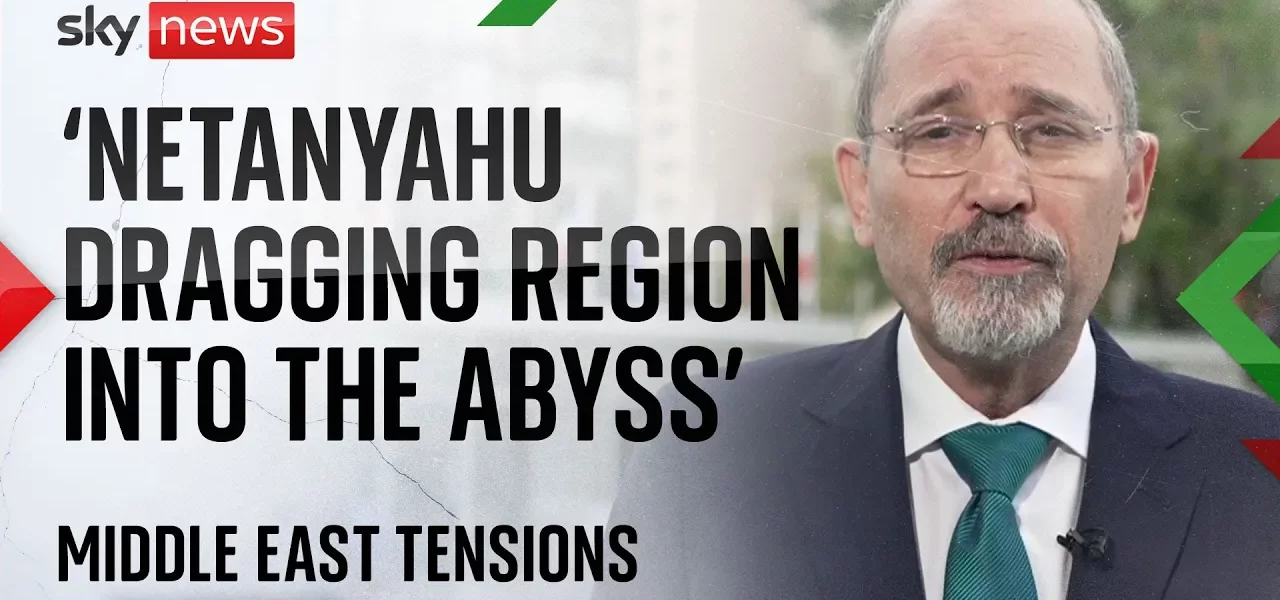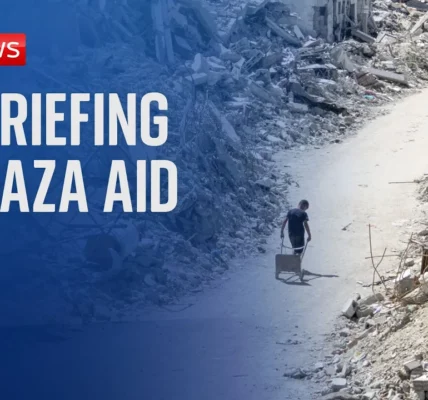Escalation of Conflict in the Middle East: A Looming Regional War?

This article delves into the ongoing tensions in the Middle East, specifically focusing on the implications of Israel’s actions under Netanyahu, the humanitarian crisis in Gaza, and the broader regional dynamics that threaten to spiral into a larger conflict. The international community’s response—or lack thereof—plays a critical role in shaping the future of this volatile region.
Introduction
The year has been marked by a significant escalation in the Middle East, with rising tensions primarily between Israel and various regional actors. Despite pleas from both local leaders and the international community to de-escalate, the situation has deteriorated, suggesting that many of these conflicts are becoming inevitable. The ongoing aggression, particularly in Gaza and the West Bank, poses serious questions about the effectiveness of international diplomacy and the potential for a wider regional war. This article seeks to explore the various facets of this complex issue, shedding light on the humanitarian implications, regional dynamics, and the urgent need for international intervention.
Changing Tactics in Israel
Recent weeks have seen a dramatic shift in Israel’s military tactics, which many observers believe could have been avoided. This escalation can be attributed to the lack of meaningful intervention from the international community, which has allowed Prime Minister Netanyahu to pursue an aggressive agenda without significant repercussions. Key factors include:
- Disregard for UN resolutions
- Increased military operations across Gaza, the West Bank, and into Lebanon
- Failure of diplomatic channels to effectively address the situation
The Role of the International Community
Despite ongoing calls for de-escalation, the international community’s response has been characterized by inaction. Many leaders express concern that their pleas have fallen on deaf ears, allowing Netanyahu to continue his aggressive policies. This has led to fears of a broader regional conflict.
The Humanitarian Crisis in Gaza
The situation in Gaza has reached a critical point, with reports indicating severe humanitarian conditions. Key statistics include:
- Over 800 civilian casualties reported.
- Approximately 250,000 people displaced due to ongoing military actions.
Implications for Civilians
The civilian population in Gaza is facing dire circumstances, including food shortages and lack of medical supplies. The international community’s failure to intervene effectively has exacerbated these conditions, raising ethical questions about the responsibility of global powers to protect human rights.
Regional Dynamics and Concerns
As tensions rise in Gaza, the implications extend beyond its borders, affecting Lebanon and the West Bank. Analysts warn that:
- The ongoing violence could ignite a regional war.
- Hezbollah’s increasing involvement in the conflict poses additional threats.
- Israel’s actions in the West Bank further escalate tensions.
Jordan’s Position
Jordan has taken a firm stance against becoming a battleground for conflicts between Israel and Iran. The Jordanian government has emphasized its commitment to regional stability and has actively worked to prevent any spillover of violence into its territory. This includes:
- Diplomatic efforts to engage both Israeli and Iranian leaders.
- Protective measures to ensure the safety of its citizens.
The Need for Action
In light of the escalating situation, there is an urgent need for the international community to take decisive action. Key areas for potential intervention include:
- Utilizing the United Nations Security Council’s capabilities to impose sanctions.
- Encouraging diplomatic efforts to foster dialogue between conflicting parties.
- Ensuring humanitarian aid reaches those in need in Gaza and surrounding areas.
Global Responsibility
Many argue that the world must come together to prevent further escalation. The consequences of inaction could lead to a situation where regional stability is irreparably damaged, impacting not just the Middle East but global security as well.
Conclusion
The current state of conflict in the Middle East calls for immediate attention and action from the international community. As tensions escalate and humanitarian crises deepen, there is a pressing need for a unified response to prevent a regional war. It is imperative for global leaders to recognize the consequences of inaction and to prioritize diplomatic solutions that ensure peace and security for all parties involved. For those concerned about the implications of these developments, it is crucial to stay informed and advocate for policies that promote stability and humanitarian assistance.
Call to Action: Engage with your local representatives to express your concerns about the ongoing conflict and support initiatives aimed at promoting peace in the Middle East.
“`




